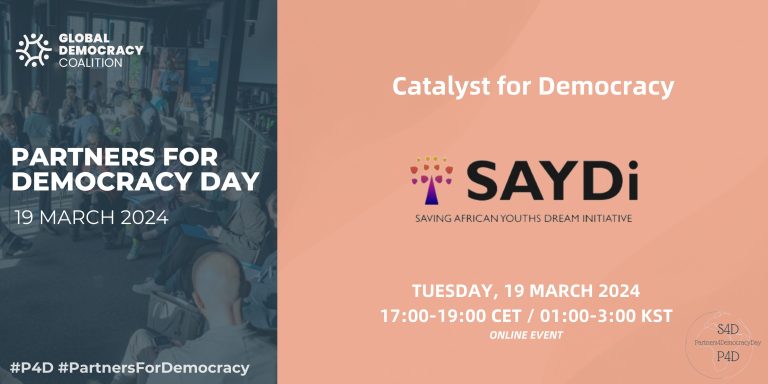This virtual discussion sought to examine the vital role of youth empowerment in advancing democratic consolidation in developing African nations. Through analysis of recent events such as the delayed elections in Senegal and the rise of military coups across the continent, the discussion aimed to identify effective strategies for engaging youth as catalysts for democratic progress.
Key Themes:
-Youth Empowerment and Democracy: Exploring how empowering young people can contribute to strengthening democratic institutions and processes.
-Challenges to Democracy: Examining the various obstacles faced by democracies in Africa, including authoritarian tendencies and political instability.
-Lessons from Senegal: Analyzing the implications of postponed elections on democratic stability in the region and drawing lessons for future governance.
-Understanding Military Coups: Investigating the underlying factors driving the surge of military coups in African countries, such as insecurity and governance failures.
-International Response: Assessing the effectiveness of regional and international responses to political crises and exploring avenues for improved engagement.
Format: The virtual discussion featured panel discussions, interactive Q&A sessions, case studies, and the formulation of actionable policy recommendations.
Audience: Target participants included policymakers, academics, representatives from civil society organizations, youth leaders, and members of the public interested in promoting democracy and governance in Africa.
Expected Outcomes: The discussion aimed to deepen understanding of youth empowerment, identify practical strategies for youth engagement in democratic processes, and generate actionable recommendations to support democratic governance in African nations.
By fostering dialogue and collaboration, this virtual discussion endeavored to empower youth and contribute to the advancement of democratic consolidation in Africa, thereby fostering a more inclusive and sustainable future for the continent.
*For more information, please contact Olorunniyi Taiwo Phillip (olorunniyitaiwo@gmail.com).

